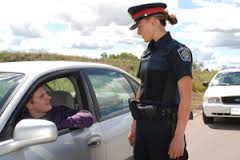
"They scoff and speak wickedly concerning oppression." Psalm 73:8
A few years ago I had the opportunity to participate in the Multicultural Teaching Scholars Program while I was in graduate school. I had the distinct pleasure of being assigned to the University of Missouri. My experience was wonderful. There were great students, great faculty, and a great campus. The lack of diversity was not so great but not unexpected at large, traditional campus. Imagine my disappointment when Mizzou dominated the news for their handling of racial issues a few weeks ago. There were stories of white students taunting black students and using ugly racial slurs. A report surfaced about the use of racial images including a swastika outlined in feces in a student dorm. These recent incidents brought Mizzou’s problem with race to a boiling point. Black students argued they raised these issues with the administration for years and nothing had been done. There were calls for the resignation of the president and provost and still nothing. Missouri’s own Lieutenant Governor argued that there was little evidence of racism when asked about the issue (Graves & Knott, 2015). The university's defense was that they didn't know these issues were occurring on campus. It was not until the predominantly black football team took a stand and refused to practice or play that the university started to pay attention. The Twitter pictures showing solidarity among black players and white players and coaches were telling.
According to the University of Missouri website, “Mizzou has a diverse enrollment with 35,000 students.” At the University of Missouri, diversity equates to a student population that is 9% black and nearly 73% white. In addition, of the nearly 1,600 faculty that are tenured or on the tenure track, only 302 are black. (These figures do not include part-time or non-tenure track faculty). How does one truly learn, appreciate, and understand different kinds of people, cultures, backgrounds, and viewpoints in such a sanitized environment?
The threat of the school losing money if the football program halted made the board take real notice. College football is a multi-million dollar industry and a life line to these schools. It was the economic threat and not the desire to truly do what is right in the face of racism, oppression, and discrimination that prompted closed door meetings, national discussion and ultimately the loss of jobs and the penning of new policy. In 2015. Curious. And the hiring of a diversity officer. I wonder why such a position did not exist before? Furthermore, Mizzou's exposure led other schools to re-evaluate the complaints they received from minority students. In 2015. Other schools are now patting themselves on the back for being innovative in the area of diversity and inclusion because they have crafted new diversity policies. In 2015.
So I leave you with this. If we as some argue live in a post-racial society, then why are we so uncomfortable discussing race??
Be safe,
L.J. Follow me on Twitter: @CrimeDoc1213
#Mizzou #UniversityofMissouri #racism #racialissues #racismoncampus #swastika #2015 #discrimination #oppression #football #footballplayers #diversity #inclusion #rights #bravery #change #ljsamuel #deardiary #justice
References
Ballentine, S. (2015, November, 21). Mizzou facing image crisis after racial issues upheaval. Yahoo! News. Retrieved from http://news.yahoo.com/mizzou-facing-image-crisis-racial-issues-upheaval-171036887.html
Graves, A. & Knott, K. (2015, November, 22). Missouri politician wrongly claims 'zero' evidence of swastika incident on Missouri campus. Political Fact Missouri. Retrieved from http://www.politifact.com/missouri/statements/2015/nov/22/peter-kinder/missouri-politician-wrongly-claims-zero-evidence-s/
University of Missouri. (2015). Demographics. University of Missouri website. Retrieved from www.missouri.edu

